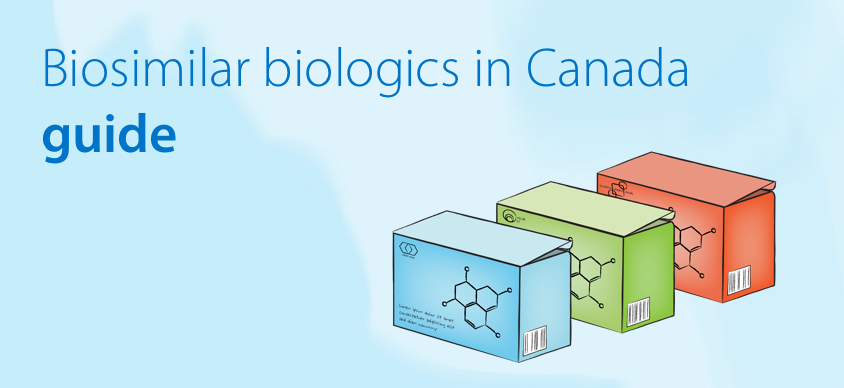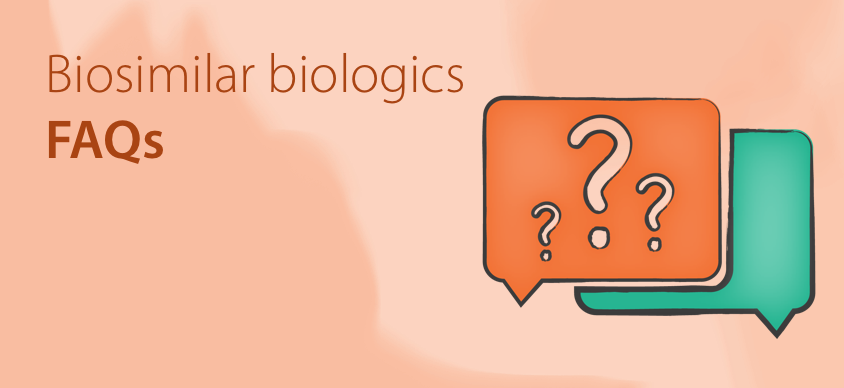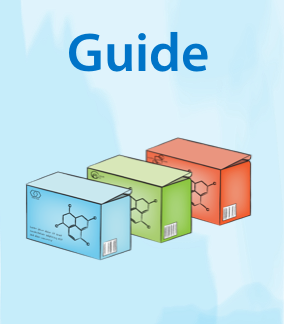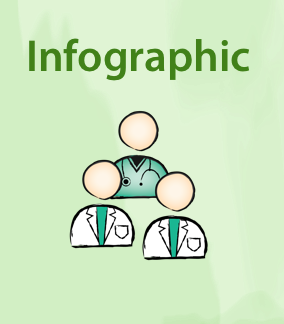Biologic (originator and biosimilar)
Biologic medicines come from living organisms or from their cells and are often made using biotechnology. They are used to treat diseases and medical conditions including anemia, hormone deficiency, inflammatory arthritis, certain types of cancer, diabetes, multiple sclerosis, inflammatory bowel disease, psoriasis, and age-related macular degeneration. Biologics are generally larger and more complex than chemically produced medicines.
Biosimilar biologic
As patents expire for originator medicines, manufacturers may produce new versions of the biologic medicines called biosimilars.
To receive Health Canada's authorization for sale, a biosimilar must demonstrate that there are no clinically meaningful differences in terms of physiochemical structure, function, efficacy and safety and immunogenicity. Clinical efficacy studies must demonstrate that the therapeutic effects of the biosimilar (both risk and benefit) are consistent. [1]
After a medicine is authorized for sale, post-market analyses and studies can further demonstrate no meaningful differences in clinical efficacy between a biosimilar and the originator. [2]
Since 2009, Health Canada has approved 55 biosimilars.
Originator biologic
Originator biologics are biologic medicines Health Canada has already approved for sale (also known as the reference biologic). When the patent of an originator expires, pharmaceutical manufacturers are allowed to make a biosimilar version of the originator.
Extrapolation
Health Canada may approve a biosimilar to treat a disease without any clinical trial data to support its use in that disease. Once “biosimilarity” to the originator has been demonstrated, it is no longer a requirement to re-study the biosimilar in all indications previously studied with the originator product. An indication is a term that means the use of a medicine to treat a specific disease. Approval of a biosimilar is not a declaration of bioequivalence with the originator. Post-approval, biosimilars are regulated like any new biologic medicine.
Immunogenicity
The immune system has evolved to recognize foreign proteins in the body. Biologics are usually injected into the body and the immune system often reacts to them. This reaction is referred to as the immunogenicity of the product. Sometimes immunogenicity can only be detected using sophisticated laboratory tests and has no impact on the patient. In other cases, immunogenicity can impact patient safety or how well the medication works.
Health Canada is addressing immunogenicity as part of the comparative clinical trials required for approval of biosimilars. In addition, biosimilar manufacturers are responsible to monitor the immunogenicity potential of the biosimilar after it is on the Canadian market.
Interchangeability
In Canada, interchangeability often refers to the ability for a patient to be changed from one medicine to another equivalent medicine by a pharmacist, without the intervention of the doctor who wrote the prescription when it has been deemed interchangeable by a Provincial or Territorial regulatory body. For instance, this is a common practice for medications that are off patent and have been deemed interchangeable with their generic equivalent.
At present and as it relates to biosimilars, Health Canada has declared biosimilars not to be interchangeable with their originator. Health Canada's authorization of a biosimilar is independent of provincial, territorial, or private drug plan decisions regarding its formulary listing and reimbursement or any decision as to interchangeability between these medicines. According to the new guidance from Health Canada, interchangeability decisions rest with provincial or territorial governments. They also regulate pharmacy substitution practices.
Medical transitions (switching)
In the case of a patient not doing well on their current originator biologic or biosimilar biologic of choice, a transition (switch) to another originator or biosimilar, or other non-biologic medicine, with a different molecular action is then considered by the patient and their rheumatologist. Transitioning when medically required is important to achieving the best disease control and outcomes.
New starts
New starts are patients who have been newly prescribed a biologic medicine. For the past eight years, provincial drug plan across Canada have listed biosimilars ahead of their originators for treatment-naïve patients (patients who have not previously received the originator).
Transition policy
Biosimilar transition policy occurs when a public or private drug plan’s reimbursement policy necessitate patients move from their current originator biologic to its biosimilar biologic. Since 2019, public and private drug plans in Canada have begun implementing transitioning policies that change coverage for specific biologic medicines.
References
[1] Health Canada Biosimilars Fact Sheet: Roles of structural and functional, non-clinical and clinical studies
[2] Health Canada: Biosimilar biologic drugs in Canada: Fact Sheet – How we monitor the safety of biosimilars after they have been authorized

Arthritis Consumer Experts
© 2000-2023

ACE thanks Arthritis Research Canada (ARC) for its scientific review of ACE and JointHealthTM information and programs.

Arthritis Consumer Experts
© 2000-2021

ACE thanks Arthritis Research Canada (ARC) for its scientific review of ACE and JointHealthTM information and programs.


Arthritis Consumer Experts
© 2000-2021

ACE thanks Arthritis Research Canada (ARC) for its scientific review of ACE and JointHealthTM information and programs.











